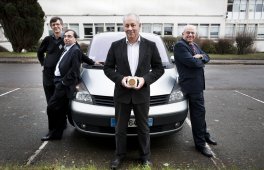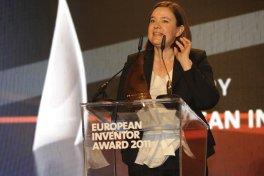Stéphane Kemkemian, Pascal Cornic, Jean-Paul Artis, Philippe Lacomme
Car radar for driver assistance system
Smart car technology has emerged as new way to help reduce the number of car accidents. The Adaptive Cruise Control (ACC) system developed by a group of French scientists is at the forefront of this new technology. Their ACC uses radar to help prevent collisions and enhance driver comfort.
Car accidents remain one of the leading causes of death and injury. Last year, car collisions in the European Union resulted in 35 000 deaths and 1.2 million injuries. The crashes also cost hundreds of billions of euros. Although technological advances like airbags have helped lessen the severity of accidents, there has been minimal progress in reducing the number of collisions.
Since 90-95% of automobile accidents derive from human error, companies have been developing driver assist technologies. These smart car technologies are currently mainly available on trucks and high-end car models.
In the early 1990's, a Thales Systèmes Aéroportés team based in Brest facility (France) developed a series of inventions that led to the creation of a new, cost-effective car radar system. This innovation, based on Thales' expertise in the field of radars and signal processing, was also the result of the Group's close relationship with its academic partners and local SMEs. The patents' licence was applied in a product developed by Autocruise, a joint venture between Thales and TRW, based in Brest and now fully-owned by TRW.
These inventions also led to the production of the first automobile radar based on millimetre wave MMICs (monolithic microwave integrated circuits) solutions, a technological breakthrough at the time.
The radar sensor based on these inventions measures the distance and relative speed of objects in front of a vehicle. It then automatically slows down or speeds up the car to a preset speed to maintain a safe distance to the preceding vehicles in the lane.
Unlike many similar systems on the market, the solution resulting from the inventions implements a frequency-shift keying continuous-wave (FSK-CW) to simultaneously determine the car's distance from foreign objects and gauge their speeds. Thanks to the patents, this waveform provides very accurate distance and speed measurements as well as a high level of objects' discrimination. It enables a reduction of the number of antenna channels, thereby cutting down on the complexity of the electronics which results in a smaller, less expensive and easy to integrate radar sensor.
The low cost design of the sensor makes it accessible to more car owners. It is also smaller than competing technologies and is well suited for road situations where multiple vehicles need to be tracked.
By innovating in the car-radar field, Thales has used its intellectual property beyond its core business and has shown its willingness to forge partnerships in the academic and SME environment.
Stéphane Kemkemian, Pascal Cornic and Jean-Paul Artis are senior radar experts at Thales Systèmes Aéroportés. Philippe Lacomme, now retired, is a former Thales Technical Fellow and Technical Director at Thales Systèmes Aéroportés.
Contact
European Inventor Award and Young Inventors Prize queries:
european-inventor@epo.org Subscribe to the European Inventor Award newsletterMedia-related queries:
Contact our Press team#InventorAward #YoungInventors


